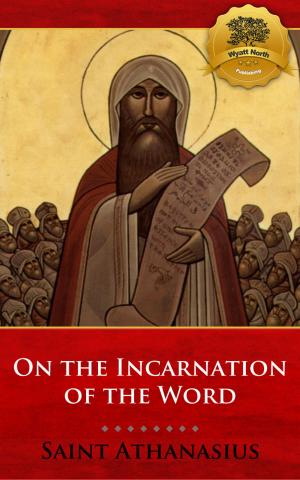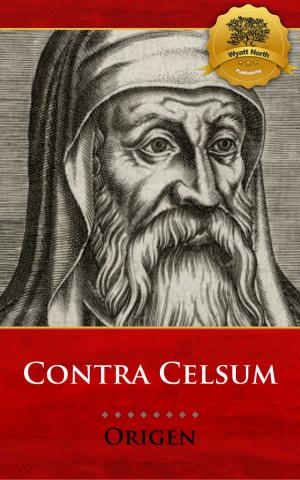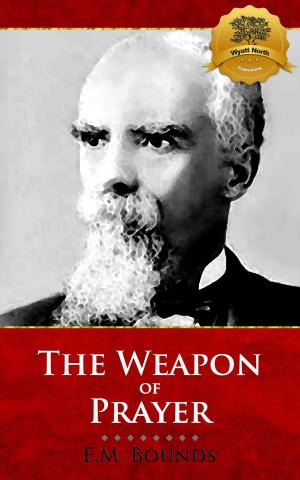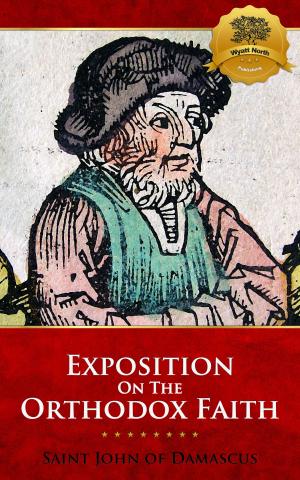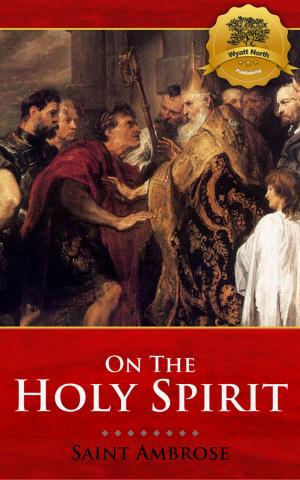95 Theses
Nonfiction, Religion & Spirituality, Christianity, Denominations, Lutheran, Monasticism, Philosophy, Religious| Author: | Martin Luther, Wyatt North | ISBN: | 9781622780006 |
| Publisher: | Wyatt North Publishing, LLC | Publication: | April 26, 2012 |
| Imprint: | Language: | English |
| Author: | Martin Luther, Wyatt North |
| ISBN: | 9781622780006 |
| Publisher: | Wyatt North Publishing, LLC |
| Publication: | April 26, 2012 |
| Imprint: | |
| Language: | English |
95 Theses comes complete with a Touch-or-Click Table of Contents, divided by each section. The Ninety-Five Theses on the Power and Efficacy of Indulgences commonly known as The Ninety-Five Theses, was written by Martin Luther, 1517 and is widely regarded as the primary catalyst for the Protestant Reformation. The disputation protests against clerical abuses, especially the sale of indulgences. The background to Luther's Ninety-Five Theses centers on practices within the Catholic Church regarding baptism and absolution. Significantly, the Theses reject the validity of indulgences (remissions of temporal punishment due for sins which have already been forgiven). They also view with great cynicism the practice of indulgences being sold, and thus the penance for sin representing a financial transaction rather than genuine contrition. Luther's Theses argued that the sale of indulgences was a gross violation of the original intention of confession and penance, and that Christians were being falsely told that they could find absolution through the purchase of indulgences.The Castle Church in Wittenberg, Germany, in the Holy Roman Empire, where the Ninety-Five Theses famously appeared, held one of Europe's largest collections of holy relics. These had been piously collected by Frederick III of Saxony. At that time pious veneration of relics was purported to allow the viewer to receive relief from temporal punishment for sins in purgatory.
95 Theses comes complete with a Touch-or-Click Table of Contents, divided by each section. The Ninety-Five Theses on the Power and Efficacy of Indulgences commonly known as The Ninety-Five Theses, was written by Martin Luther, 1517 and is widely regarded as the primary catalyst for the Protestant Reformation. The disputation protests against clerical abuses, especially the sale of indulgences. The background to Luther's Ninety-Five Theses centers on practices within the Catholic Church regarding baptism and absolution. Significantly, the Theses reject the validity of indulgences (remissions of temporal punishment due for sins which have already been forgiven). They also view with great cynicism the practice of indulgences being sold, and thus the penance for sin representing a financial transaction rather than genuine contrition. Luther's Theses argued that the sale of indulgences was a gross violation of the original intention of confession and penance, and that Christians were being falsely told that they could find absolution through the purchase of indulgences.The Castle Church in Wittenberg, Germany, in the Holy Roman Empire, where the Ninety-Five Theses famously appeared, held one of Europe's largest collections of holy relics. These had been piously collected by Frederick III of Saxony. At that time pious veneration of relics was purported to allow the viewer to receive relief from temporal punishment for sins in purgatory.


